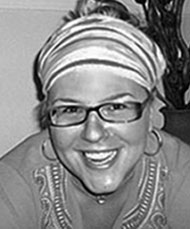Probing the Paradox
Kate Masley studies the healthy birthing practices of Latina women
 If Americans can improve the health of newborn babies, especially among the poor, they may owe some thanks to medical anthropologist Kate Masley '98 and her study of the "Latina Paradox."
If Americans can improve the health of newborn babies, especially among the poor, they may owe some thanks to medical anthropologist Kate Masley '98 and her study of the "Latina Paradox."
The paradox, noted by public health experts, is that Latina women in the United States, especially Mexican immigrants, tend to deliver healthy babies of normal birthweight, despite the fact that these women are often poor, don't have much formal education, lack health insurance, and haven't gotten much prenatal care.
The explanation lies partly in cultural practices that Masley first observed as a Kenyon junior participating in the College's program in Honduras. Watching the street scene in Cofradia, the small town where she and her classmates lived, she noticed "how all the women were mothers with children, and their children were kind of mothering their younger siblings."
Masley began studying Honduran views of pregnancy and childbirth, using both questionnaires and interviews. The Honduran women, she found, "saw pregnancy and childbirth as a source of strength. There was a great amount of pride they showed in their experiences, especially when telling me they didn't have any medication, that it was natural childbirth."
This contrasted sharply with the attitudes she discovered after she returned and, for her senior honors thesis, extended her research to mothers in Knox County, Ohio. Many of the American women "couldn't stop talking about the pain, and how they wanted an epidural."
Taking the research still further while earning a Ph.D. at Case Western Reserve University, Masley discovered that many of the practices she'd seen in Honduras had corollaries in the wider immigrant Hispanic culture. For example, she examined "La Cuarentena," a forty-day postpartum "quarantine" during which new mothers are confined to their houses and supported by friends and family.
"Really, it's a time when family, friends, neighbors, all step up and help the woman as much as they can. They watch her other children, they cook for her. It's almost like you have several post-partum doulas with you," says Masley, who is a certified birth doula herself. She contrasts this to the general U.S. population of women, many of whom have little to no physical support in the weeks after giving birth.
The exact mechanics of how this kind of support structure might improve infant health are unclear, but Masley thinks the relief of stress on the new mother might be a factor. The women themselves ascribe the effects of La Cuarentena to "getting their hot and cold balance back," says Masley. "Many women said after giving birth their bodies were more 'open,' and more likely to have bad air--cold air--come in." Masley remembers how many of the Honduran women, just after giving birth, would wear hats and socks, and put cotton in their ears, as a way of keeping the "bad air" out.
Masley hopes that her work can help improve health for all newborns. "They're doing something right," she says of the Latina women. But, she cautions, research shows that "with each U.S.-born generation, these infant health outcomes are deteriorating," becoming more like those of other minorities, such as African-Americans.
For the past few years, Masley has been studying the Mexican immigrant population in the Cleveland area, while teaching as an assistant professor at Cleveland State University. This year, she and her husband will be moving to Milwaukee, where she hopes to broaden her research across racial and ethnic groups, studying the differences in infant health outcomes.
It's research that Masley finds especially urgent now, in a political climate in which health care and immigration make for inflammatory topics. "When you hear the word 'illegal' now, so many people immediately think, 'Mexican,'" she says. Masley, who volunteers with the Hispanic nonprofit advocacy group HOLA (Hispanas Organizadas de Lake y Ashtabula), would like to focus on the positive aspects of immigration.
"We can learn from Mexican-American women," she says. "By hearing women's experiences, meeting women, talking with them, my goal was to highlight the faces, voices, and range of life experiences existing behind the statistics, and dispel some of the myths and stereotypes."
Do you have feedback on this page?
